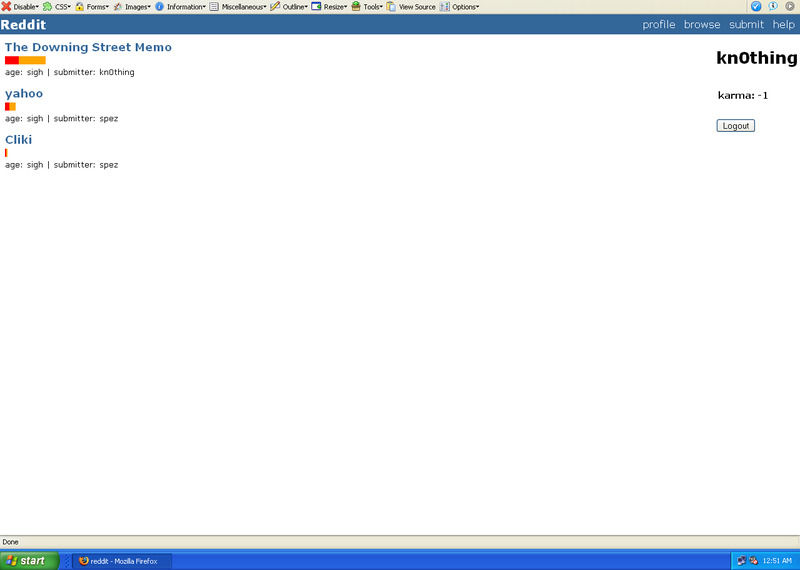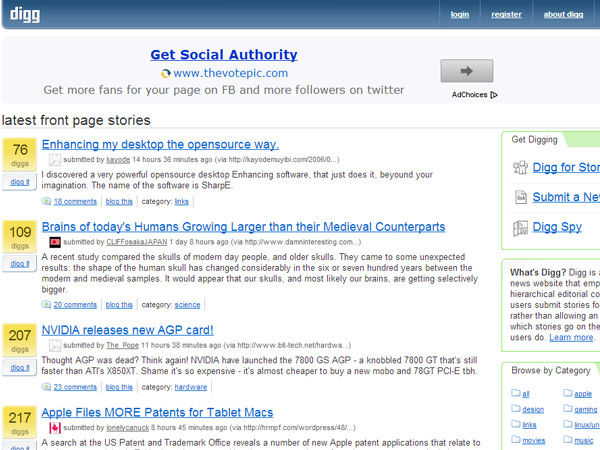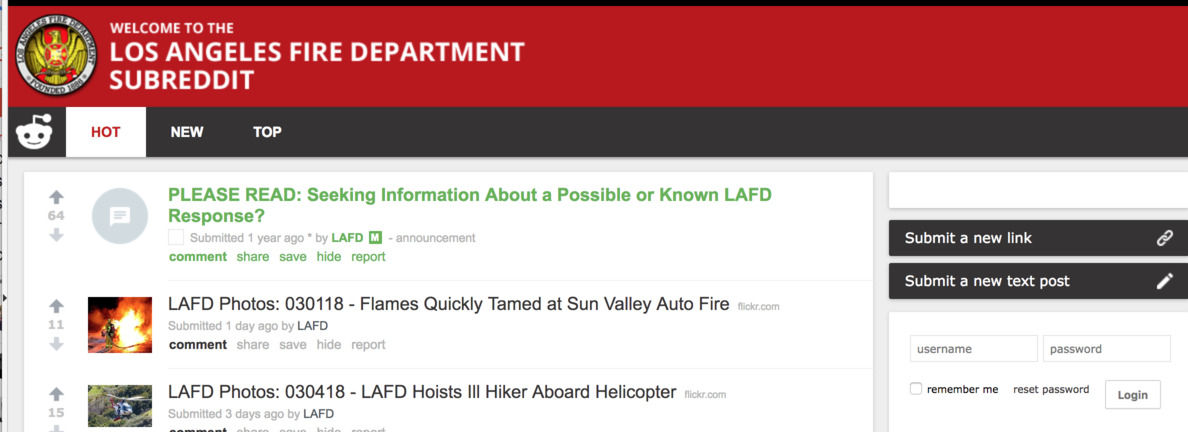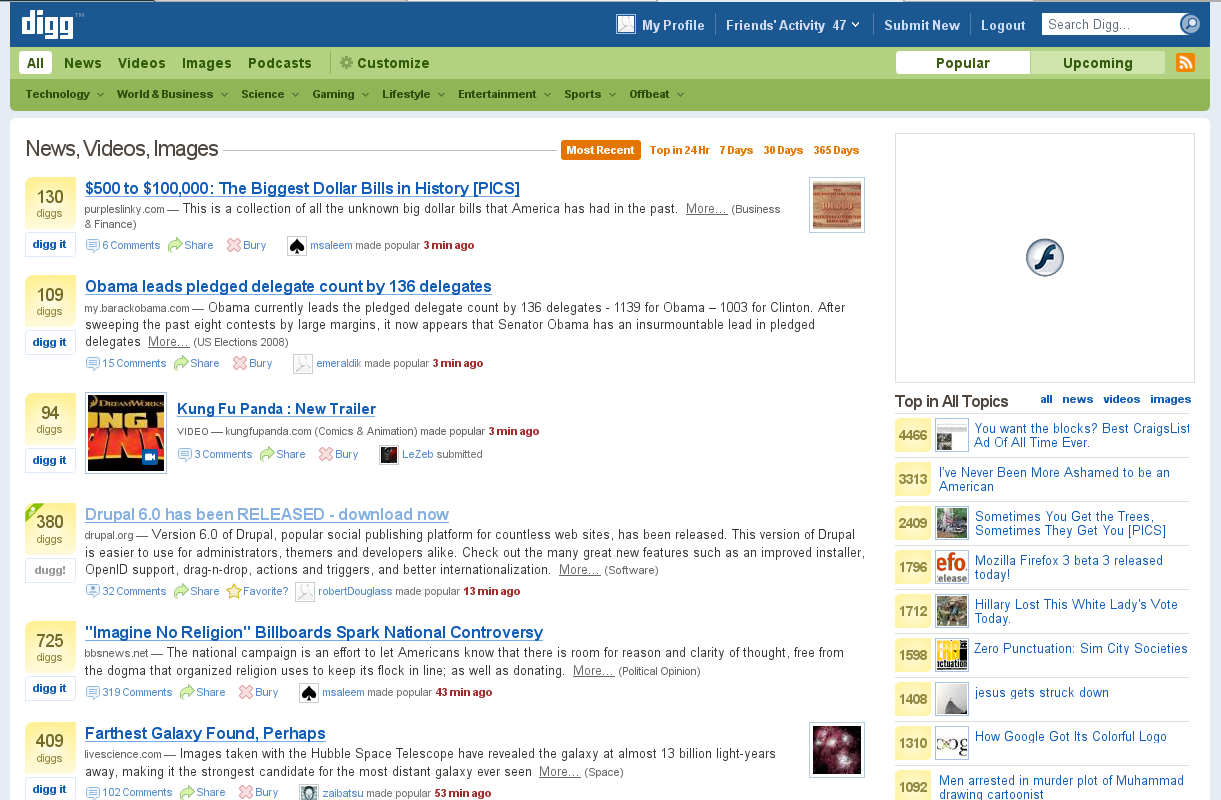Jessica Livingston has a passion for the web’s future. It’s what lead her, in March of 2005, to quit her day job and help start up a new kind of investment firm called Y Combinator. Livingston had been a director at another VC firm, but she wanted to do things a bit differently with Y Combinator. Instead of unfathomably large seed investments, they would give out small initial investments to dedicated entrepreneurs, and gather all of the them together in one space so they could work out their idea and get it to market quickly. The focus, they decided, would be on talented hackers who could build the stuff of dreams.
Over the years, the first Y Combinator group ever assembled has entered the Silicon Valley mythos. It included Aaron Swartz, Justin Kan, Emmett Shear, and Sam Altman, just to name a few. But there were two others who had tried to get in. Twice actually. They just didn’t have the right idea. Livingston, though, saw potential and wanted to take a chance on the duo. She convinced her husband, Paul Graham (who had helped start Y Combinator) to give them one. He sat down with them, chucked all their previous ideas out the window, and tried to figure out something amazing they could build. They settled on a “front page for the Internet.”
Their names were Steve Huffman and Alexis Ohanian and they were given $12,000 to put together this new front page in the summer of 2005. It was extraordinarily simple. A list of links ranked by popularity with an option to upvote or downvote each one. Like a shared bookmarking space for the Internet. Graham pushed for an early release, so the two founders created a bunch of fake accounts and posted links to make the site look active. But within a short time, they had gathered real, actual users posting real, actual links. It was Ohanian who came up with the name. Reddit, as in “I read it on Reddit.”

Digg was waiting in the wings though. And all they saw was a cheap ripoff.
Digg actually got its start first, launched at the end of 2004. It had a similar vibe to Reddit, a list of links that could either be “dugg” or “buried” by its users (by version 2, these were even organized into content verticals). But in just a few months, Digg had gathered together a few distinct advantages. They had a flourishing community, a fairly large team, and by the end of 2005, millions of dollars in funding. Digg was destined to be the hottest new startup. But they kept a close eye on Reddit.

Huffman and Ohanian ended up pulling in two of their Y Combinator colleagues as co-owners of the company, Aaron Swartz and Chris Slowe. The team crammed into a single apartment and just kept on working, building their community and adding new features. The aesthetic simplicity and anything goes mentality was a draw for a lot of people on the web. There were some talks of acquisitions over the years, but it was Conde Nast (who had just finished purchasing Wired at the time) that swooped in and acquired Reddit in late 2006. That would ultimately be where the problems for the company started, but it did lead to some pretty amazing innovations.
Digg, meanwhile, only continued to grow. If you were a betting man in 2008, it was likely that’s where you’d put your money.
The stories of Digg and Reddit are oft-told and well-trodden. I don’t want to linger on them too much here because what actually fascinates me about them is their co-existence and competition. It is, I think, no coincidence that they sprung up at the same time. The web had started out pretty small, and it was easy enough to follow all the stories you wanted to by just bookmarking a few homepages. But more and more sites sprung up and things just got a lot harder to follow. Digg and Reddit were both built to meet the needs of an increasingly more isolated web audience. Their instinct was to bring people together. And yet how things played out of the two sites could not be any different. Their responses to the same kinds of situations of even more so. I encourage you to read up about the origins of both sites more. But I’d like to just share with you two examples of this strange duplicity. One small, one big.
One of Digg’s biggest coups was in April of 2007 when one user posted a link to an article that detailed exactly how to bypass DRM protection and hack into what was then pretty new HD-DVD technology. It was an extremely popular story on Digg, but one that upset the protectors of DRM, the DMCA. In response, they sent some strongly worded legal notices to Digg, and Digg pulled the story down.
Within a week or so Digg ended up putting the story back up after a wave of outrage from its users. But I think it’s worth mentioning because this is the attitude that Digg took over the years. If there is something particularly offensive or crude or even threatening to the site, they tend to just take it down (even if their users throw a fit). It got to the point that some users even begin dreaming up what was known as the “Bury Brigade,” a possibly fictitious (but possibly real mind you) secret cabal that lurked in the shadows on Digg and intentionally downvoted en masse stories that evoked too much controversy or dissent. Users thought the group was made up of the site’s co-founders and other powerful members of the Digg board. This would ultimately inspire another group years later, in 2010, when a very real “bury brigade” would come along in the form of the extreme right wing group Digg Patriots, that intentionally upvoted and downvoted stories that fit their cause.
Reddit has faced down the same kind of thing. One of the most influential additions to their site was the subreddit, a feature which essentially let users create their own section of the site, with its own mini-community. Subreddit owners put together their own rules, enlist their own moderators, and what is kind of the point here, monitor their own content. There have been more than a few subreddits that are nothing more than dark pits of hate speech, or dangerous collections of violent individuals. Reddit’s general stance has always been to defend these subreddits. Often to a fault.

In 2011, Anderson Cooper brought to his audience’s attention one particularly egregious subreddit where users posted lewd images of underage girls, barely walking the line of legality let alone decency. Reddit had defended the subreddit many times over the years, citing free speech and open exchange. However, this time, Reddit finally buckled to public pressure and removed the subreddit entirely. But over the years, this happened again and again (it still is, if you’re wondering). When faced with hateful or even dangerous content, Reddit will almost always choose to defend it.
But that just goes to show that even with the same origin and same premise, the two sites can be very different in their approach. Like the time that the two were faced with the very same problem at the very same time. Let me set the scene. It was the summer of 2010.
Kevin Rose, one of the founders of Digg, had recently ousted his former partner and co-founder Jay Adelson as CEO of Digg in a public and somewhat humiliating spectacle. Rose took over and cleaned house, firing just about everyone that had worked closely with Adelson. See, Digg made money from ads. But ads were starting to lose value and they didn’t have a whole lot of venture capital coming in. Adelson had been working on a major redesign of the site meant to boost traffic and engagement. It had even received some positive feedback form the community. But Rose scrapped all that and began micro-managing the details of a brand new redesign. One that would ensure a financial future for his site. They needed ad sales and partnerships if Digg was going to work.
Just about every founding member of Reddit had left at this point. Only one remained. Chris Slowe. Conde Nast, meanwhile, was beginning to tighten the ship a bit and examining the properties it owned. Reddit was far from its most illustrious profit-center so they knew they had a target on their backs. Late one afternoon, Slowe and a few Reddit employees posted something new to their blog. The post was about a feature called Reddit Gold, which had more or less been joke passed around over the years. Reddit Gold was a way for members to pay a yearly membership fee in order to receive some loosely defined premium access on the site. Now though, Reddit explained to its users, Gold was the only thing that might save the site from financial ruin. They were asking their community for support in the most tangible way they could. That post went up on Friday, July 9, 2010, so that Slowe’s bosses at Conde Nast would go home for the weekend before they realized what happened.
Rose released his own version 4 of Digg on August 25, 2010. A lot of you know where this is going. It went terribly. A lot of users favorite features, like the bury button and the favorites panel and the neatly organized categories, were all gone. They were replaced by a lot of content that was syndicated directly from major news publications. Publications that were able to auto-submit content straight to Digg. It wasn’t long before Digg’s feed was dominated by big publishers, leaving independents all but abandoned. There were plenty of little things that irritated users as well, like the removal of timestamps and legacy vote counts, as if Digg starting from scratch when no one asked them too. The community got pretty darn upset about that.

Slowe’s managers came into the office on Monday morning a bit disappointed to find out what their employees had slipped by them the week before. They were startled to hear the news though. Reddit had made six figures in just three days from new users signing up for Gold. In fact, Reddit users largely applauded the effort, seeing it as a worthwhile alternative to invasive advertising. When Digg did release their redesign, Reddit users flooded the front page with links to Reddit, gathering together troves of their community to boost the links to the top of the site. In the fallout, a lot of users ended up packing their bags and moving over to Reddit.
So here were two companies with the same problem. Reddit turned to their community and struck literal gold, and Digg turned to a redesign so bad that it literally became its own meme and an enduring lesson in the industry of exactly how not to handle changes to your website. Some of you know how the story ended. Reddit kept on going, while Digg eventually sold to the VC firm Betaworks for a fraction of what they were worth (it’s been relaunched as a different sort of platform more recently).
I really don’t want assign too much meaning to all of this. Both site’s have handled things extremely well and extremely poorly. Digg took a shot on advertising, one that didn’t, and I would argue couldn’t work out. But Reddit, for all its trust in its users, has subjected the world to some truly heinous content and toxic communities.
If you ran the experiment a 100 times, built 100 versions of the same site, you’d get 100 different outcomes. I don’t know, maybe that’s the lesson. That the web is, and with any luck always will be, limitless in its scope, serendipitous in its connections, and above all, wildly unpredictable.


Leave a Reply